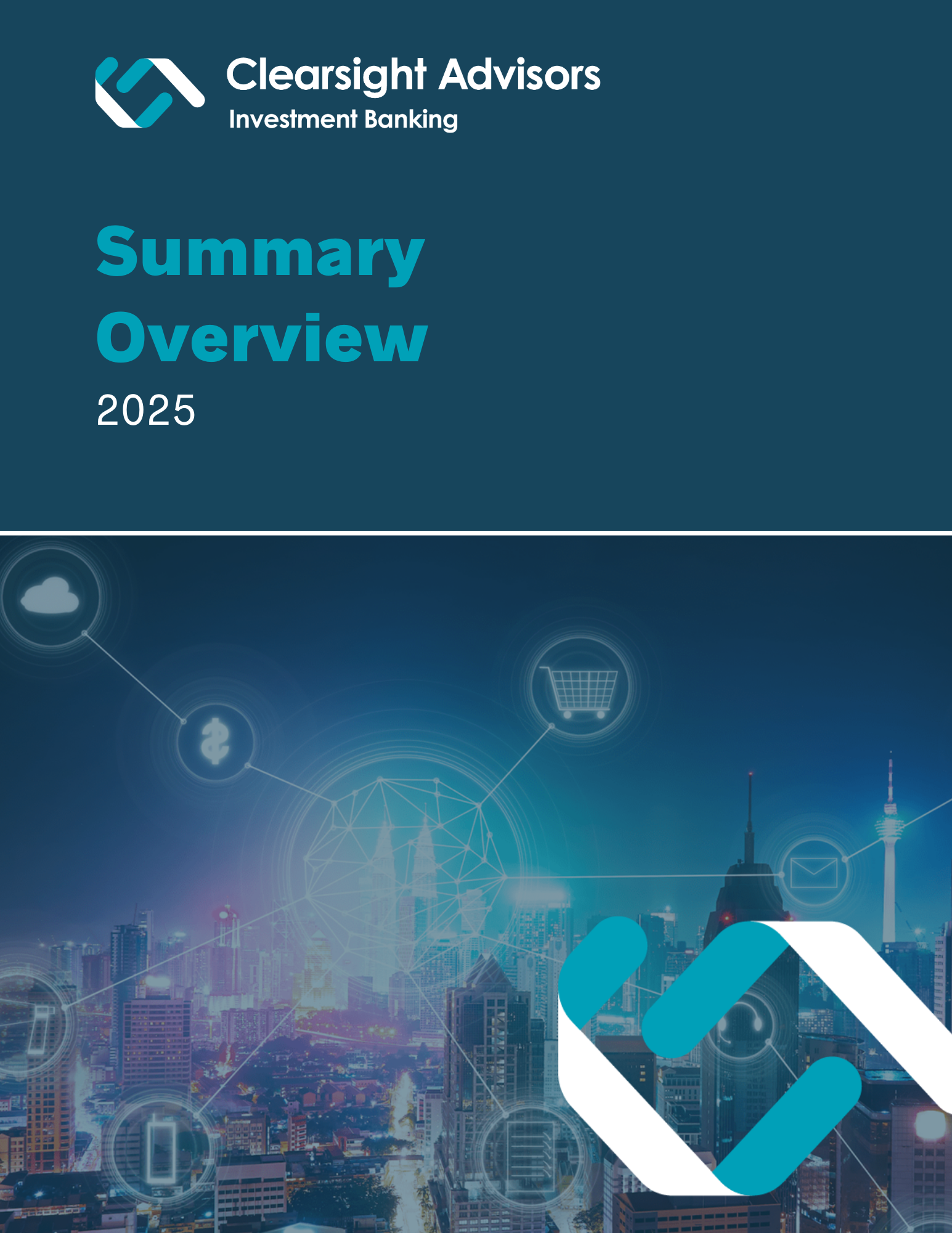Webinar: Status of M&A Deal Activity and Prospects
In a recent installment of the Pillsbury Law Webinar Series: Status of M&A Deal Activity and Prospects, Clearsight Managing Director Joel Kallett shared his analysis of COVID-19’s impact on the deal landscape. He was joined by panelists from Baird, Kipps DeSanto, Houlihan Lokey, and FON Advisors to discuss their experience with professional and tech-enabled services businesses during the crisis so far. The resounding finding is that not all industries have been equally affected, with the hospitality and travel industry market cap falling by approximately 50% and the internet and online business index rising by over 6%. Although much is still unknown about how COVID-19 will affect the M&A market in the long run, we are closely monitoring the situation and can share what we are seeing so far.
It is important to note that the M&A market is by no means dead. There continues to be an appetite for healthy businesses that are taking proactive steps to weather the COVID-19 storm and adjust accordingly. Recent headlines have focused more on the large cap deals that are in jeopardy due to the crisis – including Xerox dropping its bid for HP and SoftBank Group pulling its $3 billion WeWork share buyback – than the middle market deals that continue to get done. While total US M&A volume is down by 50% so far this year, middle market activity volume is only down 12%, signaling the continued desire to move forward on smaller deals, albeit at a slower pace. While this is promising, the market has proved highly uncertain with little visibility on valuations and outlook.
With market uncertainty in mind, many are wondering how debt markets are meeting market demand. At the moment, deals that need debt capital are becoming more complex and seeing their estimated dates of close extended while conditions remain murky. Larger strategic buyers are drawing down on their revolving credit lines with banks seeing revolvers currently utilized at 60-80% of capacity. This compares to revolvers typically running at about 20% of capacity and only at 40% during the financial crisis. Clearly, a new strategy is in play.
Beyond the strictly quantitative effects COVID-19 is having on the M&A market, we are acutely aware of the human element that is part of every transaction and has been equally impacted. The decision to sell, acquire, or invest in a business depends as much on the financial picture as it does on the cultural fit between the two parties. COVID-19 gathering restrictions are testing parties’ ability to connect and determine best fit as management meetings and presentations proceed via video conference and phone call. This interpersonal challenge has contributed in large part to the massive slowdown of M&A activity and cannot be overlooked. The virtual closure of deals will depend on the individual preferences of those involved as well as the type of transaction taking place. It is important to meet each client and perspective partner at their level of comfort as we enter this new paradigm.
The M&A markets during COVID-19 are changing rapidly in response to the mercurial position the global economy is in at any given time. Buyers, sellers, and advisors should remain aware of new developments affecting deal activity including policy changes, investor attitudes and liquidity. Joel Kallett will be a panelist on Pillsbury Law’s next Webinar in the series taking place on May 28th where he will discuss the latest developments. Clearsight will also continue to publish blog posts and analysis to help you stay informed during this rapidly evolving crisis.
Share
